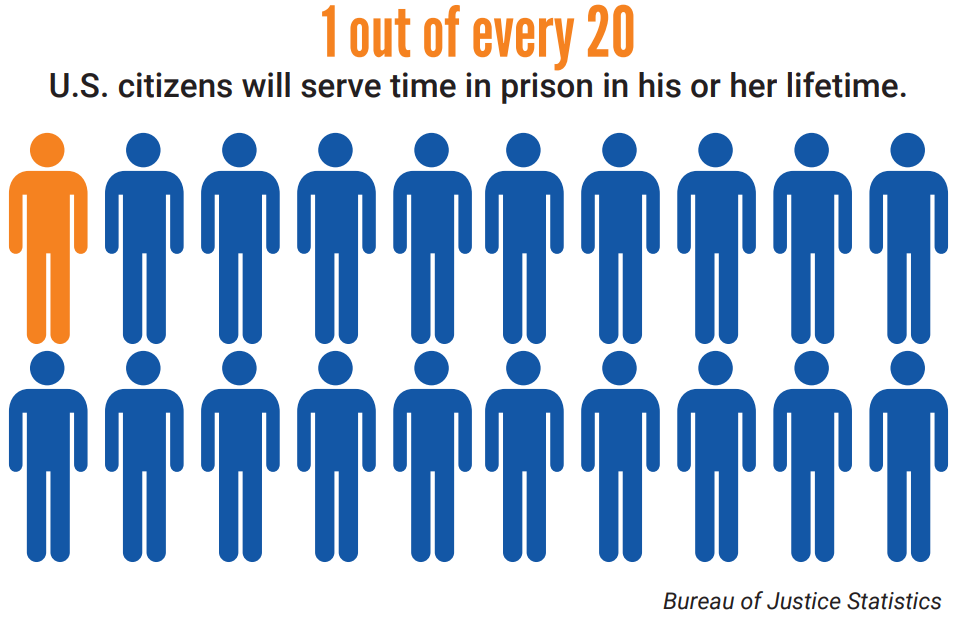About 2,000 people are released from Iowa prisons and return to the central Iowa area each year (Dept. of Corrections). Finding a stable job is critical to a returning citizen's ability to build the sturdy foundation they need to be successful in the future. Yet, many individuals with a criminal record face a long series of rejections that make it nearly impossible to reestablish themselves in our community.
People of color are especially impacted by by the criminal justice system. Black adults in Iowa are imprisoned at nearly 11 times the rate of white adults (ACLU Smart Justice Report). Having a record makes it incredibly difficult to work, find a place to live, and to access opportunities that would allow them to be contributing members of our community.
Employers have an opportunity to consider candidates with a criminal record as a way of building a productive and engaged workforce, increasing diversity in the workplace, and creating a better community for everyone. Plus, employers could receive incentives to protect you from any concerns.
Here are a few hiring best practices that will allow individuals with a criminal record to apply for your jobs:
1. Remove the check box that asks if applicants have a criminal record from hiring applications.
2. Include a statement on the application form that says, “Criminal records do not automatically disqualify an applicant.” An employer may want to include a statement that says, “Falsification of any answers or any material omissions are grounds for discharge no matter when they are discovered.”
3. Train human resources staff and hiring managers on making fair decisions regarding applicants with criminal records.
4. Require a release for a background check in the application process. Have each applicant sign a consent form, including a check for criminal
records, past employment, and education.
5. Use reliable background check providers to help ensure accuracy.
6. Be consistent in conducting criminal background checks to avoid an inference of discrimination against a certain racial or ethnic group.
7. Delay the background check at least until after the interview and preferably until a job offer has been made.
View our guide
If you are considering some of the changes above, download our guide for further help and to answer questions you may have about the process hiring someone with a criminal record.
/CIW%20Logo%20-%20UWCI%20-%20Reverse.png?width=207&height=118&name=CIW%20Logo%20-%20UWCI%20-%20Reverse.png)



%20-%20No%20Tagline.png?width=180&name=211%20Logo%20-%20color%20(white%20bubble)%20-%20No%20Tagline.png)

